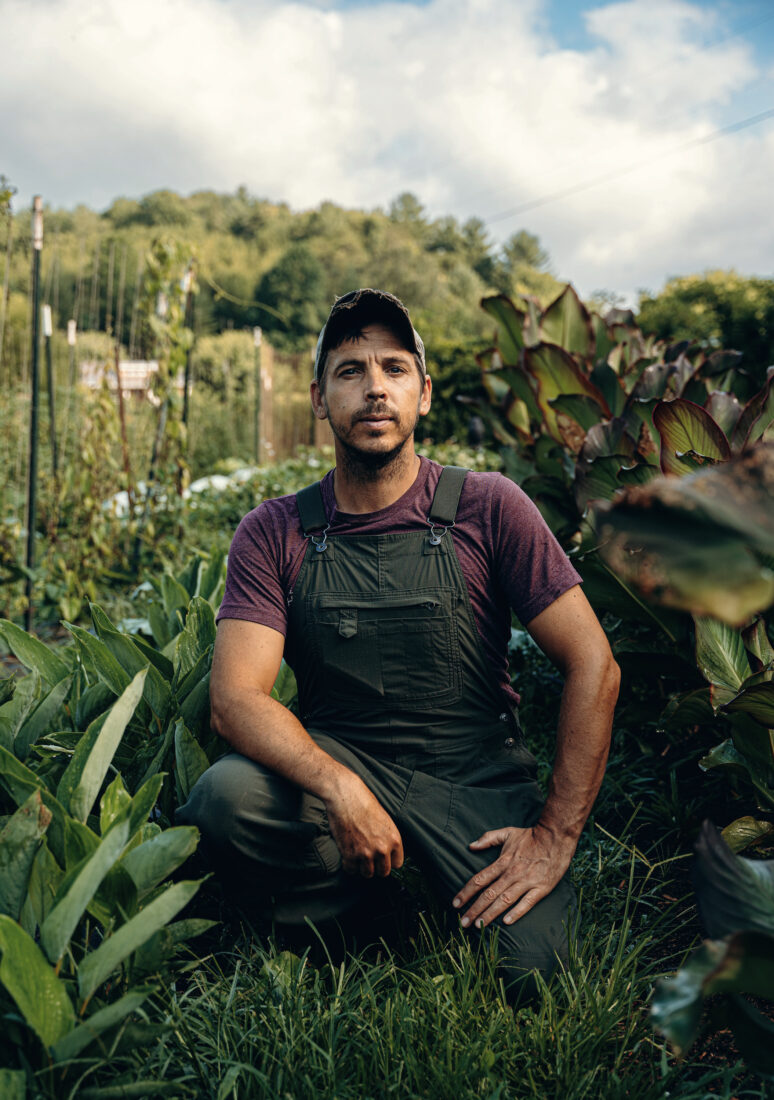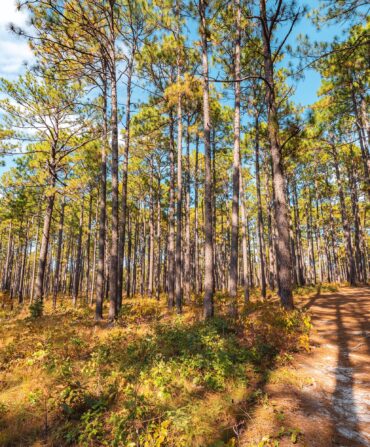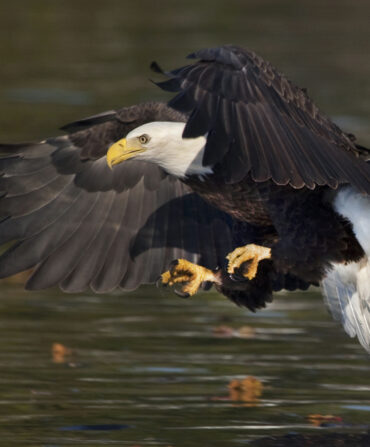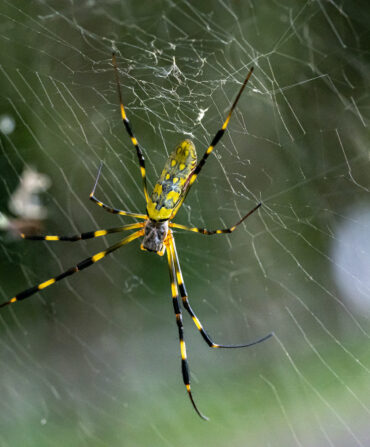The plots Chris Smith tends outside of Asheville, though modest in size, are a miraculous patchwork of produce: okra; yard-long beans dangling like spaghetti out of a pot; colorful collards; taro corm; Moringa; chayotes; yacóns; pawpaws. Crops from South America, Africa, and Asia flourish alongside sweet potatoes and Southern peas. All are part of Smith’s Utopian Seed Project, a nonprofit preparing seeds—and subsequently plants and people—for a shifting future.
Currently, three crops supply 60 percent of the average human’s caloric intake. “If everything remained stable, there would be some advantages to that,” Smith says. But today’s rampant floods, temperature extremes, and droughts have wrought the opposite. “If we lean in to monoculture, we’ll just have to keep modifying the environment to suit those crops.” Instead, he and his team encourage adaptation by neither irrigating nor fertilizing their plants. Sometimes the crops rise to the challenge. But “if something fails, we can ask why,” he says. “Failure is just a data point.”
Smith’s approach is threefold. One aspect, crop diversity, involves importing seedsube from the Philippines, for instance—and determining how to cultivate them in North Carolina, carefully avoiding invasive species or stowaway pests. “As we have longer warmer seasons, it’s going to get easier to grow these tropicals,” he explains. “Most of the food we eat,” including okra, sweet potatoes, and peas, “is not native to the Southeast anyway.”
Secondly, Smith advocates for farmers and gardeners to vary their crops. “The USDA has a thousand varieties of okra in their gene banks—and there are more than four thousand varieties in the Indian gene banks—yet almost everybody I talk to is growing Clemson Spineless,” he says.
His third aim, the farm’s most “radical,” is to spearhead genetic diversity, cross-breeding plants such as collards to create hardier varieties. “We’re giving the collards the genetic tools to adapt to climate chaos,” he says. “Instead of changing the environment to suit the crop, we’re challenging the crops to suit the environment.”
As he and his team experiment and expand, donating South American achira to local chefs and teaching farmers to grow taro and turmeric, he hopes his mountain plots develop a wide reach. “If the seed supply dries up, farmers can’t grow and chefs can’t cook,” he says. “Sustainable seed systems are foundational to a sustainable food system.”
* * *
Expertise: Agriculture
Location: Asheville, North Carolina
Conservationist since: 2013
Pod person: When Smith emigrated from the United Kingdom in 2012, he landed a communications job at a garden cooperative, immediately falling in love with the often-misunderstood okra plant. His book, The Whole Okra, won a 2020 James Beard Award.
Read about all ten Champions of Conservation.








